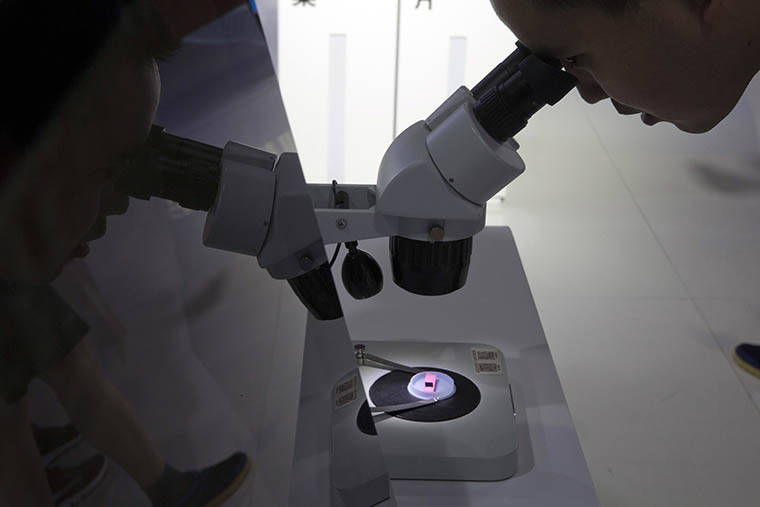
WASHINGTON >> The Netherlands and Japan, both makers of some of the world’s most advanced equipment for manufacturing semiconductors, agreed Friday to join with the United States in barring some shipments of their most high-tech machinery to China, people familiar with the agreement said.
The agreement, which followed high-level meetings with U.S. national security officials in Washington, will help expand the reach of sweeping restrictions issued unilaterally by the Biden administration in October on the kinds of semiconductor technology that can be shared with China.
The countries did not publicly announce the agreement, because of its sensitivity, and details remain unclear. But the deal seems likely to put technology industries in the countries on a more even footing, preventing companies in Japan and the Netherlands from rushing in to claim market share in China that has been abandoned by U.S. firms. U.S. companies have said that possibility would put them at a disadvantage.
The White House and the Dutch government declined to comment. The Japanese government did not immediately respond to a request for comment.
The United States imposed strict controls in October on the sale to China of both semiconductors and the machines used to make them, arguing that Beijing could use the technology for military purposes, such as breaking American codes or guiding hypersonic missiles. But well before those restrictions were issued, the United States had been pressing the Netherlands and Japan to further limit the advanced technology they export to China.
The October rules also clamped down on certain shipments to China from countries outside the United States. Using a novel regulation called the foreign direct product rule, the Biden administration barred companies that use American technology, software or inputs from selling certain advanced semiconductors to China. But these measures applied only to chips, not the machinery used to make them.
Instead, the White House continued to press allies to pass restrictions limiting the sales of semiconductor manufacturing equipment by firms such as Dutch company ASML or Tokyo Electron in Japan. The White House argued that the sale of this advanced machinery to China created the danger that Beijing could one day make its own versions of the advanced products it could no longer buy from the United States.
The negotiations, which are likely to continue, have had to overcome both commercial and logistical concerns. Like the Americans, the Dutch and Japanese were concerned that if they pulled out of the Chinese market, foreign competitors would take their place, said Emily Benson, a senior fellow at the Center for Strategic and International Relations, a Washington think tank. Over time, that “could impact their ability to maintain a technological edge over competitors,” she said.
The Dutch government has forbidden sales of its most advanced semiconductor machinery, called extreme ultraviolet lithography systems, to China. But the United States has encouraged the Dutch to also limit a slightly less advanced system, called deep ultraviolet lithography.
Governments have also faced questions about whether they possess the legal authority to issue restrictions like the United States, as well as extensive technical discussions about which technologies to restrict. Japan and the Netherlands will still likely require some time to make changes to their laws and regulations to put new restrictions in place, Benson added, and it could take months or years for restrictions in the three countries to mirror one another.
This article originally appeared in The New York Times.
Read More: World News | Entertainment News | Celeb News
Star







